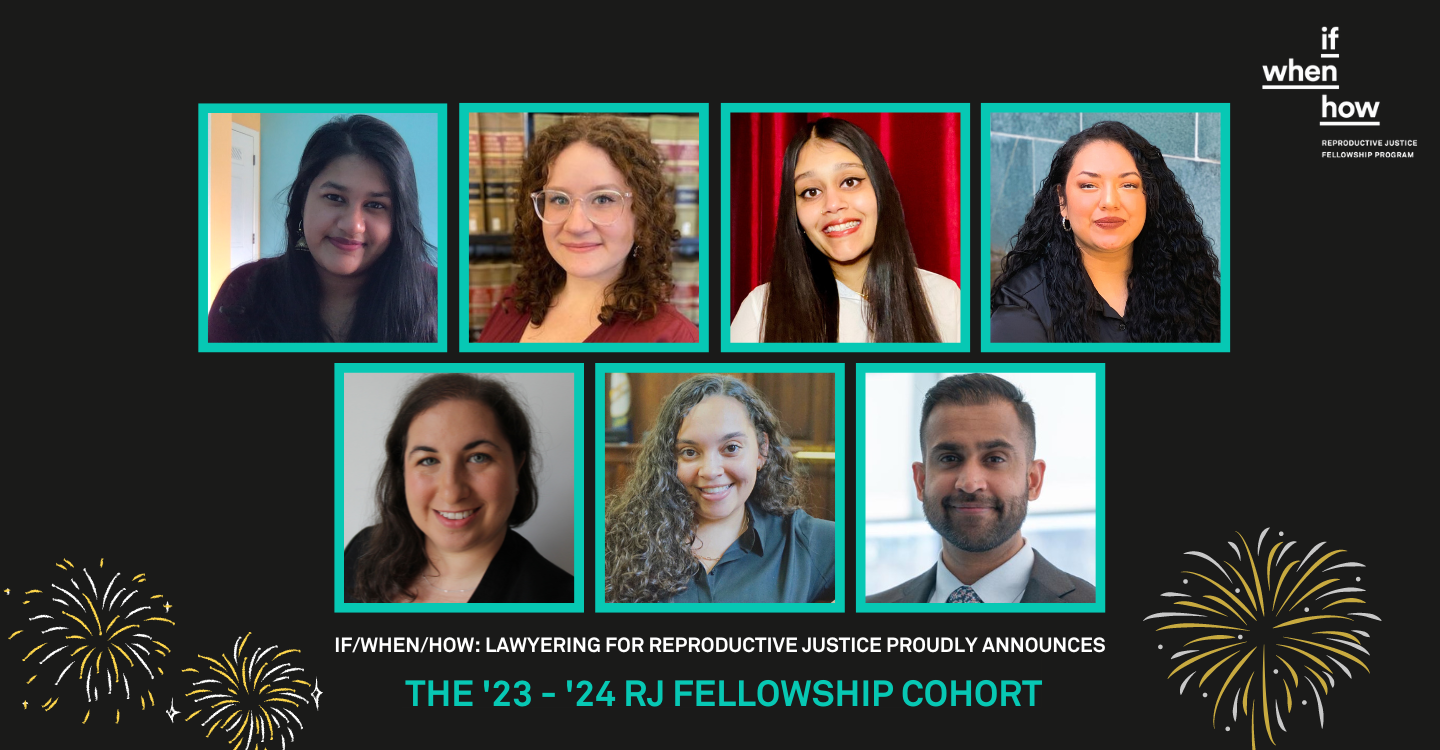By Mackenzie Darling
If/When/How’s Quick Question series highlights the work of our Reproductive Justice Fellows, introducing our network to the incredible advocates who are dedicating their lives to the movement to lawyer for reproductive justice. We’re so proud of the work they’re doing at placement organizations across the country.
Mackenzie Darling (she/her) holds a B.A. in philosophy and a B.S. in public health from the University at Albany and a J.D. from Northeastern School of Law, with concentrations in health law and policy and poverty law and economic justice.
While in law school, Darling completed internships with Reproductive Equity Now, Pregnancy Justice (formally NAPW), and Women’s Law Project. She has also worked as a legal researcher at the Northeastern University School of Law’s Health in Justice Action Lab and as a research assistant at the Northeastern University School of Law Center for Health Policy and Law. As an undergrad student, she co-taught a course on intersectional feminism and worked as a sexual health peer educator. During her first year after law school, Darling was a Maeve McKean Women’s Law and Public Policy Fellow, where she worked with HIPS and the O’Neill Institute for National & Global Health Law on the campaigns to decriminalize sex work and drug possession in the District of Columbia.
Darling considers herself an intersectional feminist, harm reductionist, abolitionist, and a very passionate reproductive justice advocate.
We asked Mackenzie to tell us a little about herself as she prepares to begin her Reproductive Justice Fellowship year at Physicians for Reproductive Health this fall.
If/When/How: Who are you, and where are you from?
Mackenzie Darling: My name is Mackenzie Darling, and my pronouns are she/her. I was born and raised in Buffalo, NY, and after living a few years in both Albany and Boston, I now reside right outside of Washington, D.C., in Silver Spring.
If/When/How: Where are you going?
MD: I am working towards a life of constant learning, change-making, and personal and professional growth. In terms of this fellowship, I am going to Physicians for Reproductive Health. As I envision my future, I see a career dedicated to uplifting and centering the experiences and stories of those most impacted by harmful policies and working on changing the law to truly embody the framework of reproductive justice, including decriminalization of substance use, healthcare for all, and unrestricted abortion access.
If/When/How: What does reproductive justice mean to you?
MD: I believe that bodily autonomy is at the core of reproductive justice. Reproductive justice requires us to achieve the right to our own bodies in every and all capacity, including reproductive and sexual choices and beyond. This movement requires us to fight for the decriminalization of bodies through the decriminalization of drug use, sex work, abortion, and pregnancy. Bodily autonomy requires us to fight against the regulation of people with marginalized bodies through border abolition, the abolition of policing and the prison industrial complex, and the abolition of the family regulation system. Reproductive justice is bodily autonomy for all without state regulation, violence, and control.
If/When/How: When you are not lawyering, what do you get up to?
MD: I am a huge reader, and can usually be found enjoying the coffee shops and bookstores in D.C. with one or two books in hand. If I am not reading, I am usually exploring the incredible (and free!) museums in the District, cross-stitching with my cat, Willow, or watching the Buffalo Sabres.
